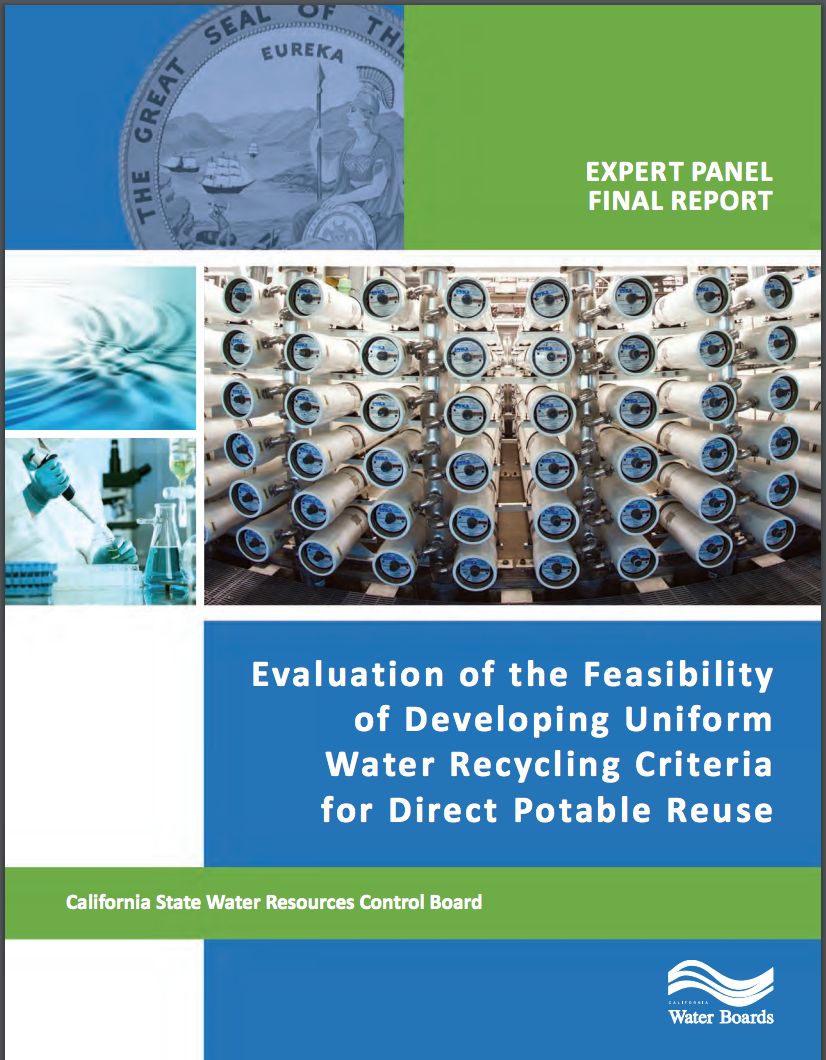
October 4, 2016 — On September 8, the State Water Resources Control Board released a draft report stating that regulations for direct potable reuse are feasible. Los Angeles Waterkeeper says the creation of these regulations need to be a high priority for the State Water Board as direct potable reuse is the key to building a drought-proof, sustainable water supply for Los Angeles.
Direct potable reuse is the addition of highly purified recycled water into the drinking water supply— as opposed to indirect potable reuse, where the purified recycled water is first introduced to an environmental buffer before used for drinking water. The State Water Board’s expert panel found that the environmental buffer that lakes and aquifers provide in indirect potable reuse are important, but the protection they offer can be replaced by enhancing the reliability of water treatment technology.
Currently in Los Angeles, recycled water for indirect potable reuse produced at the Hyperion Treatment Plant is used to replenish groundwater, but the plant also dumps treated wastewater into the Santa Monica Bay at a rate of 250 million gallons per day — contributing to the water quality degradation of the coastal waters. Direct potable reuse technology would instead allow more capture of the treated water and more purified drinking water to be added back into Los Angeles’ water supply — directly.
LA Waterkeeper says that a direct potable reuse program in Los Angeles can alleviate the pressure for ocean desalination plants and importing water from regions like northern California and Colorado — which are far more expensive, energy intensive and environmentally harmful.
“We pay through the nose in money, energy and environmental impact to pump water from hundreds of miles away into Los Angeles, then use it once and dump it into our coastal waters. We’re flushing money down the drain,” says LA Waterkeeper Executive Director Bruce Reznik. “Direct Potable Reuse is a crucial tool for building a drought-proof water supply for Los Angeles. It will keep more of our water in Los Angeles and keep more pollution out of our bays.”
The State Water Board says that more studies need to be done in order to create statewide standards for direct potable reuse, however, that research can be done concurrently with the development of direct potable reuse regulations.
“California needs to establish direct potable reuse regulations that are protective of public health. It is a sustainable water supply that can reduce the strain on the Colorado River and is accessible for all regions of the state,” says California Coastkeeper Alliance Executive Director Sara Aminzadeh.
The report provided six research recommendations to ensure that direct potable reuse programs contain adequate monitoring for pathogens and other unknown contaminants in order protect public health. The final report is anticipated to be submitted to the legislature by the end of this year.
###
LOS ANGELES WATERKEEPER:
Founded in 1993, Los Angeles Waterkeeper’s mission is to protect and restore Santa Monica Bay, San Pedro Bay and adjacent waters through enforcement, fieldwork, and community action.
CALIFORNIA COASTKEEPER ALLIANCE:
California Coastkeeper Alliance unites 12 local Waterkeeper programs to achieve swimmable, fishable and drinkable waters for all Californians.

Executive Director Sean Bothwell leads CCKA’s initiatives to fight for swimmable, fishable, and drinkable waters for all Californians.



